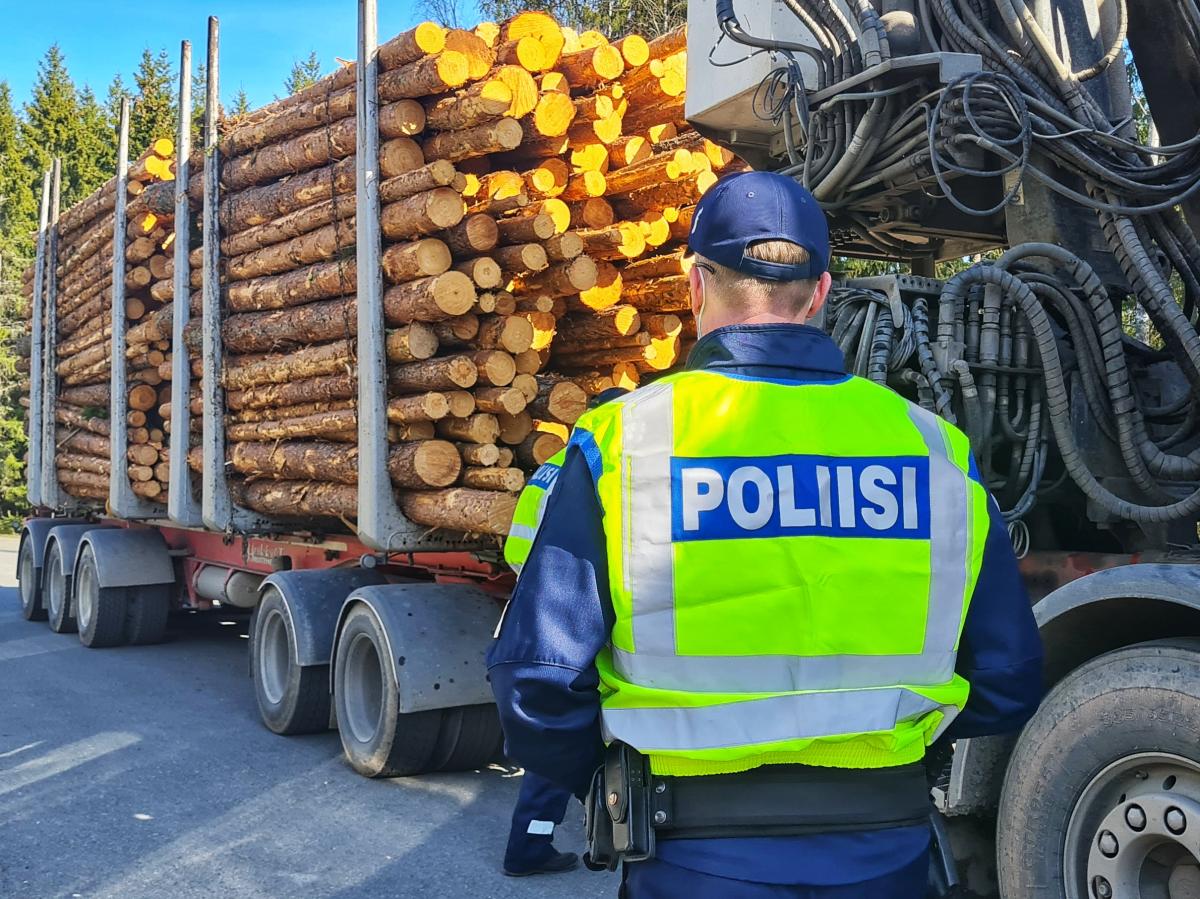Many cases of overloading detected in heavy traffic control operation, but improvement seen in driving times and rest periods

The police conducted a special control operation of heavy vehicle traffic last week throughout the country. All police departments participated in the operation, in which a total of 1,206 vehicles were inspected.
“This time, the most striking result was that the number of infringements involving driving hours and rest periods was considerably lower than before,” says Chief Superintendent Heikki Kallio of the National Police Board.
He is satisfied with the result, because the trend has been positive in controls this year. The total number of driving time and rest period infringements was 73, exceptionally low in relation to the number of inspections conducted.
However, the number of overloading cases detected was unreasonably high in comparison with the number of vehicles inspected. During the campaign, a total of 1,206 vehicles were inspected and 45 of them carried an overload.
“We have still seen no change for the better, as we had hoped,” Kallio says.
A total of 264 different sanctions were imposed on the drivers. The number of sanctions was slightly lower in relation to the number of inspected vehicles than during the corresponding campaign last year. Some of the drivers were given sanctions for more than one violation. Approximately 14 percent of the vehicles inspected were foreign.
Defectively secured loads resulted in several sanctions, 64 in all, and sanctions were imposed in 46 cases due to malfunctions in the vehicles. In five of these cases, the journey had to be discontinued completely. A total of 242 admonitions were issued for various smaller violations.
The aim of the operation was to improve road safety and combat crime associated with the shadow economy and transport. Surveillance focused on the most prominent issues detected during the previous campaigns, such as overloading, compliance with driving hours and rest periods, fastening of the load, and the overall condition of the vehicles.
socialShareGray




